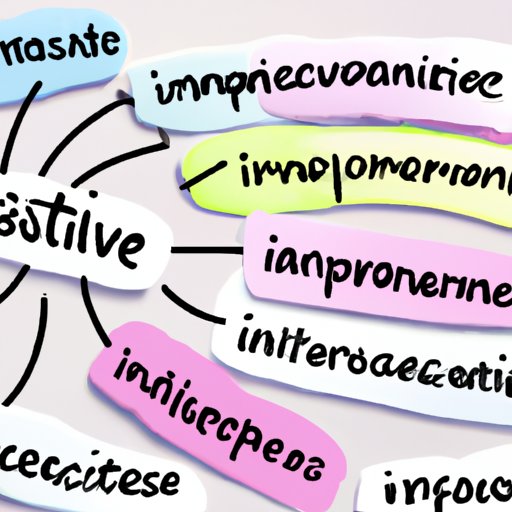
I. Introduction
Emotional control is a skill that everyone needs, but not everyone has mastered. It’s common for individuals to struggle with controlling their emotions in stressful or challenging situations, which can lead to negative outcomes in both personal and professional relationships. The good news is that it’s possible to improve one’s emotional control with the right techniques and guidance. This article provides readers with practical tips and techniques for mastering emotional control, which can help improve their overall quality of life.
II. 7 Simple Steps to Mastering Emotional Control
Emotional control is the ability to manage one’s emotions in a healthy and constructive way. It’s an important skill that can help individuals navigate challenging situations with greater ease. Here are seven simple steps that readers can take to improve their emotional control:
- Recognize and label your emotions: This allows individuals to better understand and manage their emotions.
- Practice mindfulness: This involves focusing on the present moment and being aware of one’s thoughts and feelings without judgment.
- Breathing exercises: Deep breathing can help to reduce stress and anxiety, which can lead to better emotional control.
- Reframe negative thoughts: This involves challenging negative thinking patterns and replacing them with more positive or realistic thoughts.
- Express yourself in healthy ways: This can include talking to a trusted friend or loved one, journaling, or engaging in a creative outlet.
- Engage in physical activity: Exercise releases endorphins, which can help to improve mood and reduce stress.
- Develop a support system: Having a network of supportive people can help individuals better manage their emotions and navigate challenging situations.
By taking these steps, individuals can improve their emotional control, reduce stress, and build healthier relationships.
III. How to Stay Calm and Collected: A Guide to Managing Your Emotions
Staying calm and collected in challenging situations is an important aspect of emotional control. It allows individuals to think more clearly and make better decisions. Here are some practical tips for managing emotions in various situations:
- In the workplace: Practice active listening, communicate clearly, and take breaks when necessary to manage stress levels.
- In personal relationships: Set boundaries, practice empathy, and communicate openly and honestly.
- In social situations: Avoid overthinking, practice deep breathing, and focus on positive interactions.
- In high-pressure situations: Take a step back, evaluate the situation, and use problem-solving skills to find a solution.
By implementing these tips, individuals can stay calm and collected in challenging situations, which can lead to better outcomes.

IV. The Emotional Intelligence Cheat Sheet: 7 Skills for Better Emotion Control
Emotional intelligence is the ability to recognize and manage one’s own emotions, as well as the emotions of others. It’s an important aspect of emotional control, as it allows individuals to better understand and navigate social situations. Here are seven skills that individuals can develop to improve their emotional intelligence and control:
- Self-awareness: Recognizing and understanding one’s own emotions.
- Self-regulation: Managing one’s own emotions in a healthy and constructive way.
- Motivation: Harnessing emotions to achieve goals.
- Empathy: Understanding and recognizing the emotions of others.
- Social skills: Building and maintaining healthy relationships.
- Conflict resolution: Navigating conflicts in a healthy and productive way.
- Communication: Communicating effectively and clearly.
By developing these skills, individuals can improve their emotional intelligence and control, which can lead to better relationships and overall quality of life.
V. Keeping Your Cool: Tips for Dealing with Intense Emotions
Dealing with intense emotions can be difficult, but it’s an important aspect of emotional control. Here are some tips for managing intense emotions:
- Identify triggers: Recognize what triggers intense emotions and avoid them if possible.
- Practice self-compassion: Be kind to oneself in difficult moments and practice self-care.
- Take a moment: Take a break and step away from the situation to gain perspective.
- Practice relaxation techniques: Deep breathing, meditation, or yoga can help to reduce stress and anxiety.
- Seek support: Talk to a trusted friend or loved one, or seek professional help if necessary.
By practicing these tips, individuals can better manage intense emotions and improve their relationships and overall well-being.
VI. The Art of Emotional Regulation: Proven Techniques for Better Self-Control
Emotional regulation is the ability to manage one’s emotions in a healthy and constructive way. It’s an important aspect of emotional control and can help individuals manage stress and reduce negative emotions. Here are some proven techniques for improving emotional regulation:
- Practice mindfulness meditation: Focus on the present moment without judgment.
- Cognitive reappraisal: Challenge negative thoughts and replace them with more positive or realistic ones.
- Dialectical behavior therapy (DBT): Learn skills to manage emotions and improve relationships.
- Progressive muscle relaxation: Tense and relax different muscle groups to reduce stress and tension.
- Expressive writing: Write about emotions and experiences to process emotions and gain insight.
By practicing these techniques, individuals can improve their emotional regulation and overall mental health.
VII. Mind Over Matter: The Science of Emotional Management
Emotions are complex and multifaceted, but it’s possible to manage and regulate them through a better understanding of the science behind emotions. Here are some key insights from research on emotional management:
- Emotions can be influenced by genetics, early childhood experiences, and environmental factors.
- Emotions are closely tied to physiological responses, including heart rate, blood pressure, and hormones.
- Emotions can be managed and regulated through cognitive reappraisal, mindfulness, and other techniques.
- The prefrontal cortex plays an important role in emotional regulation and decision-making.
By understanding the science of emotional management, individuals can better manage and regulate their emotions in a healthy and constructive way.
VIII. Emotional Freedom: A Roadmap to Effective Emotion Control
Emotional freedom is the ability to experience a full range of emotions without being overwhelmed by them. It’s an important aspect of emotional control that allows individuals to live a more fulfilling life. Here is a roadmap for achieving emotional freedom and better emotional control:
- Recognize and accept emotions: Recognize and accept emotions without judgment or suppression.
- Develop emotional intelligence: Learn skills to understand and regulate emotions.
- Practice mindfulness: Focus on the present moment and be aware of one’s thoughts and feelings without judgment.
- Engage in self-care: Take care of oneself physically, emotionally, and spiritually.
- Develop positive relationships: Surround oneself with supportive and positive people.
- Embrace change: Learn to adapt to change and handle uncertainty with grace.
By following this roadmap, individuals can achieve emotional freedom and improve their emotional control, leading to a more fulfilled and balanced life.
IX. Conclusion
Emotional control is an important skill that can help individuals navigate challenging situations, build healthier relationships, and improve their overall quality of life. By implementing the practical tips and techniques discussed in this article, individuals can improve their emotional regulation skills and achieve emotional freedom. It’s important to remember that emotional control is a journey, and it takes practice and patience to master. By taking small steps and remaining committed to the process, individuals can achieve the emotional control they desire.





